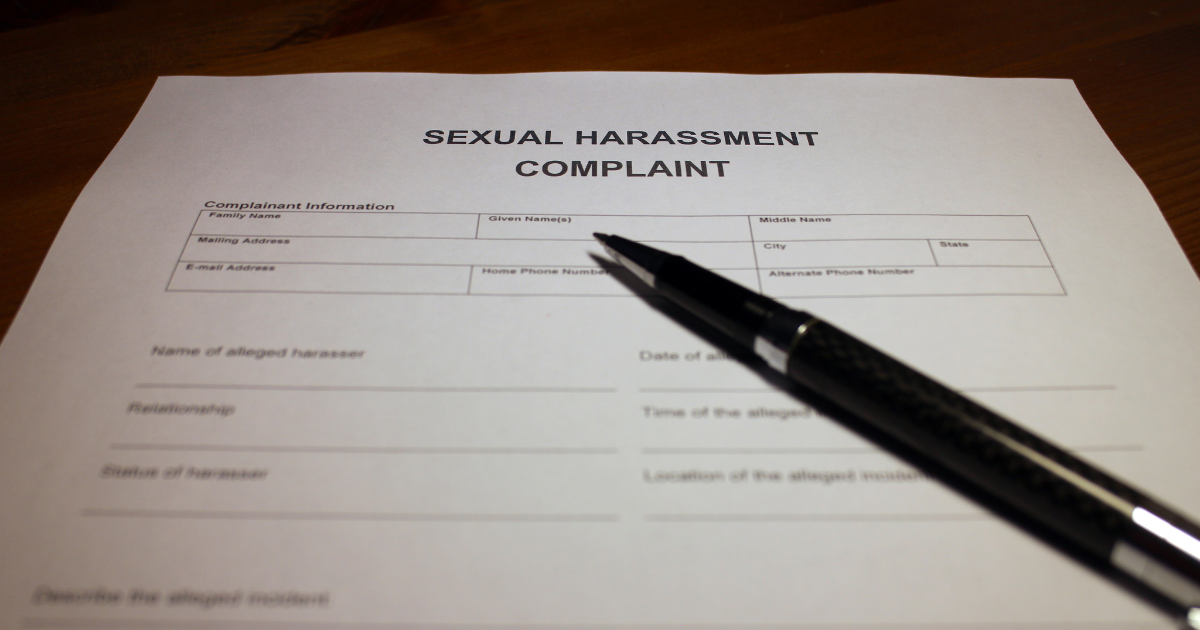Does My NDA Prevent Me From Calling out Sexual Harassment?

Non-disclosure agreements, or NDAs, are a common component of employment contracts in today’s workplace. They are used to prevent employees from disclosing trade secrets and confidential company information, but do NDAs apply to sexual harassment complaints and other civil rights matters? The answer is complex and depends largely on the terms of your employment.
We will explore this issue and recommend next steps to protect your rights and your interests if you experience sexual harassment at work.
NDAs as a Tool to Keep Employees Quiet About Workplace Harassment
It makes sense that companies want to keep trade secrets under wraps. If inside company information gets out, it could seriously impact their bottom line. But is it fair to expect employees to keep the details of a sexual harassment complaint confidential?
It may not seem fair, but it is possible. Your right to speak out depends on the confidentiality agreement you sign when you take a job or settle a harassment case.
An Example of an NDA in a Settlement Agreement
Let us take the example of a male worker who files a sexual harassment complaint against a supervisor who repeatedly asks him out on a date—while he repeatedly declines the offer.
His boss even promises him a raise if he consents to a romantic relationship with her. When he declines again, she gives the job to another employee with less skills and experience. This scenario has all of the components of a valid sexual harassment case.
After finally having enough, he reports his supervisor. With texts and emails to support his claims, the employer has no choice but to act. To avoid litigation, the company negotiates a settlement with the employee. They agree to compensate the employee with a caveat—he must agree not to disclose the amount of the settlement or the details of the allegations.
If the employee violates this provision, the employer can sue them in civil court. However, because lawsuits are public record, they may refrain from enforcing an NDA to keep the case as quiet as possible.
There are other ways to discourage an employee from speaking out. Some settlement agreements contain a provision that states they can stop paying the employee if that employee discloses privileged information. Other settlement agreements have a “liquidated damages” clause that requires an employee who violates an NDA to pay the company a specific amount of money.
Why Are NDAs Problematic in Sexual Harassment Cases?
Of course, employers do not want the public to find out about sexual harassment and other civil rights violations that occur in the workplace. But when we are quiet about these pervasive issues, they are more likely to continue.
As we have seen with the recent “Me Too” movement, shedding light on the problem is the key to awareness and prevention of sexual harassment. Everyone deserves a safe, equitable, and inclusive work environment.
Bill 849: Disclosing Sexual Harassment in the Workplace Act
NDAs that prevent individuals from speaking out about harassment may be a thing of the past in Pennsylvania if House Bill 849 is approved. The bill, which has been referred to the state senate’s Labor and Industry committee for approval, would ban NDAs related to sexual harassment as a requirement for employment—unless it was agreed to by both parties.
Federally, the U.S. Senate Judiciary Committee in September unanimously approved the Speak Out Act, a bill that invalidates NDAs specifically designed to prevent employees from publicly disclosing instances of workplace sexual harassment or assault in order to prevent future harm to others. Similar state bills have already been passed in New York, New Jersey, California, and Illinois.
Currently in Pennsylvania, your NDA precludes you from sharing your experience, you can face possible legal action, damages, or a smaller settlement if you do. It is best to have your Philadelphia employment lawyer review any employment contract, non-disclosure agreement, or settlement agreement before you sign. This way, you are fully-informed of your rights and obligations at all times.
Philadelphia Employment Lawyers at Sidkoff, Pincus & Green, P.C., Are Committed to Protecting Clients’ Civil Rights
If you have experienced sexual harassment or other forms of discrimination at your job, the skilled Philadelphia employment lawyers at Sidkoff, Pincus & Green, P.C. can help. Established in 1958, we have a proven track record of success achieving good outcomes for our clients. Call 215-574-0600 or contact the firm online to schedule a consultation today. Located in Philadelphia, we serve all of Pennsylvania and New Jersey.















